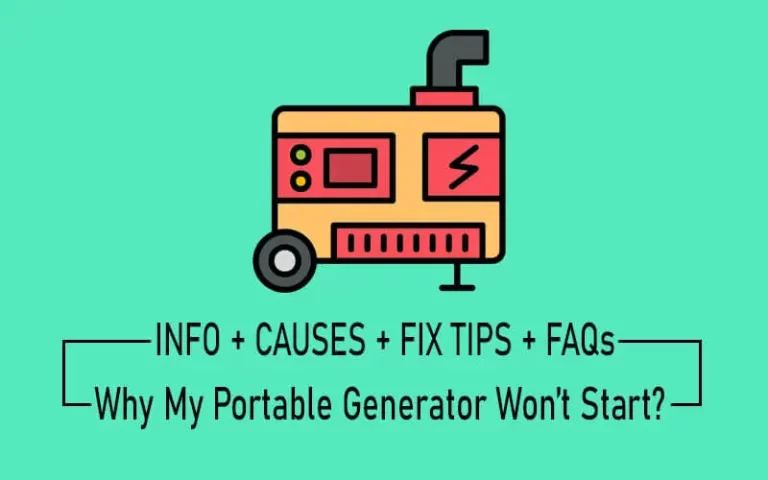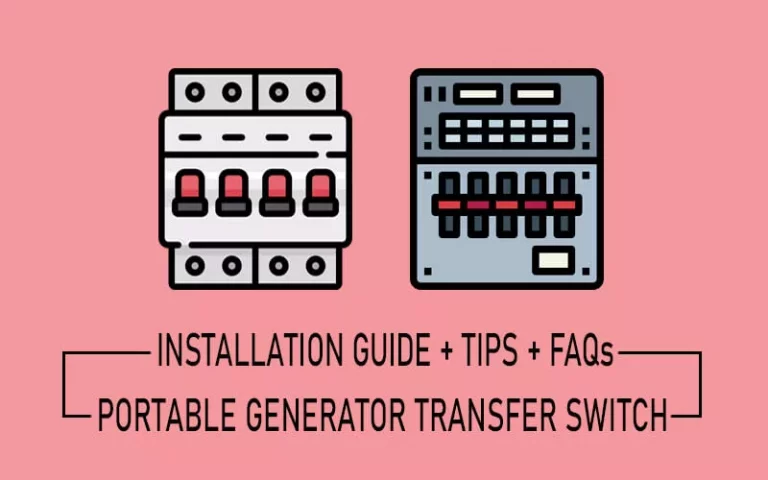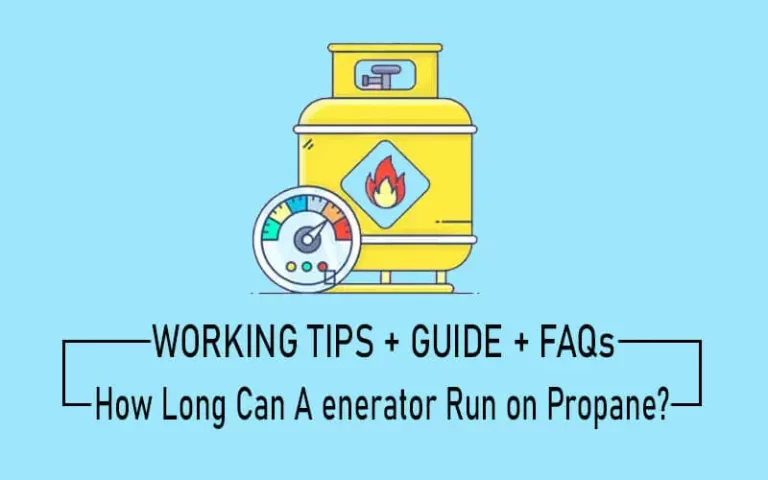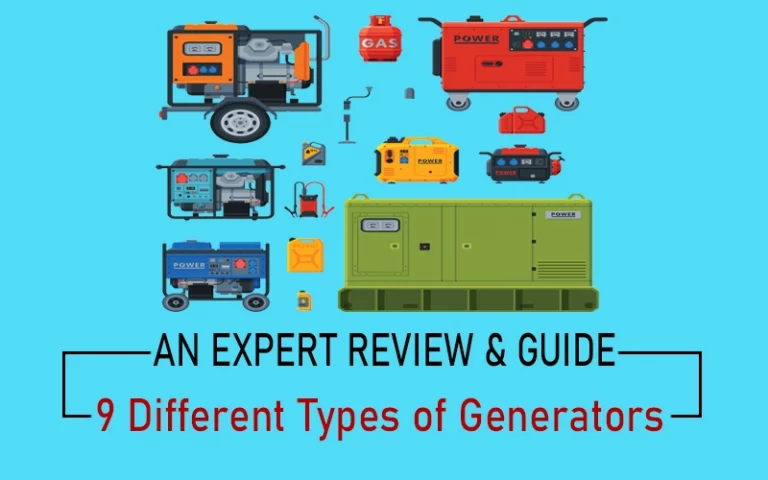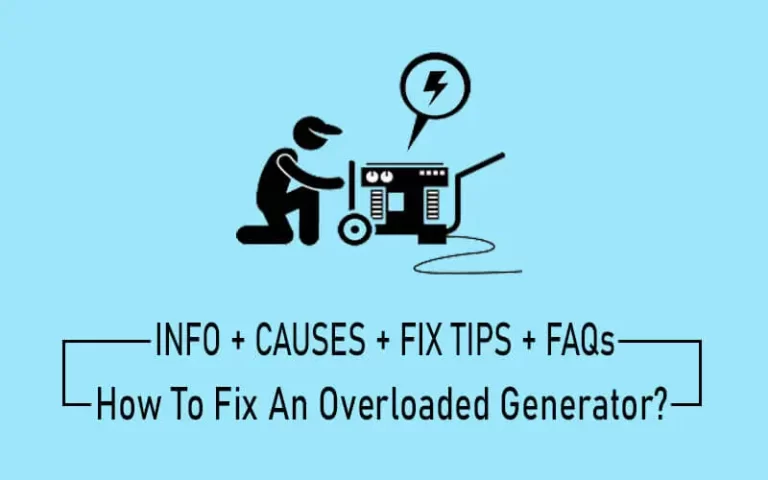Inverter Generator vs Conventional Generator (Pros & Cons)
Today in our review, we will discuss the vital differences between the Inverter Generator and vs. Conventional Generator.
The inverter is a new type of generator different from conventional generators. Also, people don’t have enough knowledge about inverter generators.
Inverter generators are also known as portable generators. At the same time, conventional generators are also known as regular generators.
One of the significant differences between the inverter and conventional generator is the weight.
Inverters have less weight. Besides that, not just the weight of generators varies, but the design and other specs also differ.
However, inverter generators are also known as lightweight generators.
And those who don’t know about inverter generators hassle every day with conventional generators.
Inverter generators are also known as portable generators. At the same time, conventional generators are also known as regular generators.
If you know the mechanism of how generators work, then you will understand this guide very easily.
Below we have stated the pros and cons of the inverter and conventional generators. Also, you will be able to choose a certain kind of generator after reviewing the difference.
Inverter Generator vs. Regular Generator
– 7 Key Differences + Pros & Cons
In the overview of Inverters vs. Traditional generators, you will know the differences.
Generally, all the technical differences between inverters and conventional generators are machine-driven.
Scroll down and find the best type of generator.
Current
The primary difference between the inverter and regular generators is the power that they provide.
Power is a kind of electricity. And if we compare the types of electricity between both generators, conventional produce AC only.
On the other hand, the inverter generator will produce three different phases of electricity, including AC to DC.
Besides that, the conventional kind of generator is messier and creates a lot of distortion.
But this generator produces power that is suitable for heavy household appliances. There’s only one difference in current in inverter generator vs. conventional generator:
| Conventional / Regular | Inverter |
|---|---|
| Conventional produce AC only | The inverter generator will produce three different phases of electricity, including AC to DC. |
Fuel and Power
Conventional generators are more significant, so they produce more power than inverters.
Also, the conventional generator has a bigger fuel tank. It has a significant difference because of the mechanical construction of generators.
Moreover, the inverters are energy savers, and these generators will adjust the power according to the appliance running on them.
Also, due to the smaller fuel tanks, the inverter generator can work efficiently.
Additionally, conventional generators have bigger fuel tanks that will run more massive and gigantic appliances.
As a result, more substantial appliances consume more fuel. Inverters produce power up to 1200 watts.
But conventional generators will produce power up to 10,000 watts.
| Conventional / Regular | Inverter |
|---|---|
| Produce more power than inverters | Produce less power than conventional generators |
| Bigger fuel tank | Small fuel tank but works efficiently |
| Best for massive & gigantic appliances | Best for small appliances |
| Produce power up to 10,000 watts | Produce power up to 1200 watts |
Portability and Efficiency
You will have an idea by now that inverter generators are smaller than conventional generators. Also, conventional generators have larger fuel tanks.
In short, conventional generators aren’t portable at all. Also, conventional generators are known as fuel-powered, so that is why they are more substantial.
Besides, some conventional generators have wheels. But they aren’t portable as inverter generators.
A few inverters have a smaller fuel tank, and you will need to attach a cylinder with them sometimes.
The small size of inverter generators makes them weigh less than conventional generators.
Also, some inverter generators have handles and wheels, so you can carry them anywhere.
Inverter generators aren’t much lightweight because they weigh up to 60 pounds as well.
| Conventional / Regular | Inverter |
|---|---|
| Bigger in size | Smaller in size |
| Have large fuel tanks | Have small fuel tanks |
| Not portable | Portable |
| Fuel-Powered | Fuel-Powered or Dual Fuel |
| Have wheels but aren’t portable | Have wheels and handles |
Noise of Generator
The noise of the generator is one of the essential features to know before buying one.
As we discussed above, conventional generators are capable of producing more power. So the conventional generators will cause more noise than the inverters.
Also, with the help of mufflers, conventional generators produce noise.
On top of that, the inverter generators are entire, so if you don’t want to disturb other people, buy an inverter generator.
Top generator brands manufacture the best silent inverter generators.
Besides that, the inverter runs only at 3600 RPM, which is less than the conventional generator.
Also, you can check the packaging of the generator to know the noise level.
Usually, the inverter generators will produce noise of around 55 to 59 decibels. But then, conventional generators will produce more than 63 decibels of noise.
| Conventional / Regular | Inverter |
|---|---|
| Cause more noise | Less noisy or quite |
| Produce noise of around 63 decibels | Produce noise of around 55-59 decibels |
Connections of Generators
The type of connection also differs between the inverter and conventional generator.
The inverter generators have a parallel connection. But conventional generators do not have a parallel connection.
And conventional generators don’t need a parallel connection because they are already powerful.
| Conventional / Regular | Inverter |
|---|---|
| They don’t need a parallel connection because they are already powerful. | They have a parallel connection. |
Emissions of Generators
The emissions of generators vary as well.
Due to the Greenhouse effect, regular generators are not environmentally friendly, and you cannot use them in parks.
On the other hand, portable generators generate less power, so that you can use them in several environments.
Some portable investors are easy to find. But the conventional portable generators that meet the environmental standard may require a lot of research.
| Conventional / Regular | Inverter |
|---|---|
| Emit high power | Emit low power |
| Not Environment friendly | Environment friendly |
Price of Generators
Lastly, we have the price of generators that causes a massive difference between conventional and inverter generators.
Portable generators are more budget-friendly than all other kinds of generators.
So if you need less power to run smaller appliances, go for a portable generator.
Also, portable generators are fuel-efficient and require less maintenance than others.
| Conventional / Regular | Inverter |
|---|---|
| Costly | Low cost & Budget-friendly |
| Best for heavy appliances | Best for running small appliances |
We hope that the differences between conventional generators and inverter generators help you to pick the perfect one for your needs.
FAQs: Inverter Generator vs. Conventional Generator
Is an inverter generator better than a conventional generator?
Inverters produce clean, reliable power which doesn’t rely on the speed of an engine.
This means that it won’t be affected by wind or other outside factors and can run smoothly at all times because there’s less noise from generators typically used in-house with them installed.
Inverter Generators offer more stability than conventional generators.
Final Verdict
The argument for the inverter generator vs. conventional generator is not objective.
Also, both kinds of generators are beneficial according to their usage.
But it would be best if you bought the right generator according to your requirements to have the best benefit.
No doubt, the inverters have better features than conventional generators.
Besides that, the conventional/Regular generator has its benefits, and you will be able to buy that at a lower price than the inverter/portable generator.
So if you want to run heavy home appliances, then a conventional generator is the best option for you.
On the other side, if you want a portable and quiet generator, then go for an inverter.
Lastly, both inverter generators & regular generators are right in their way.


